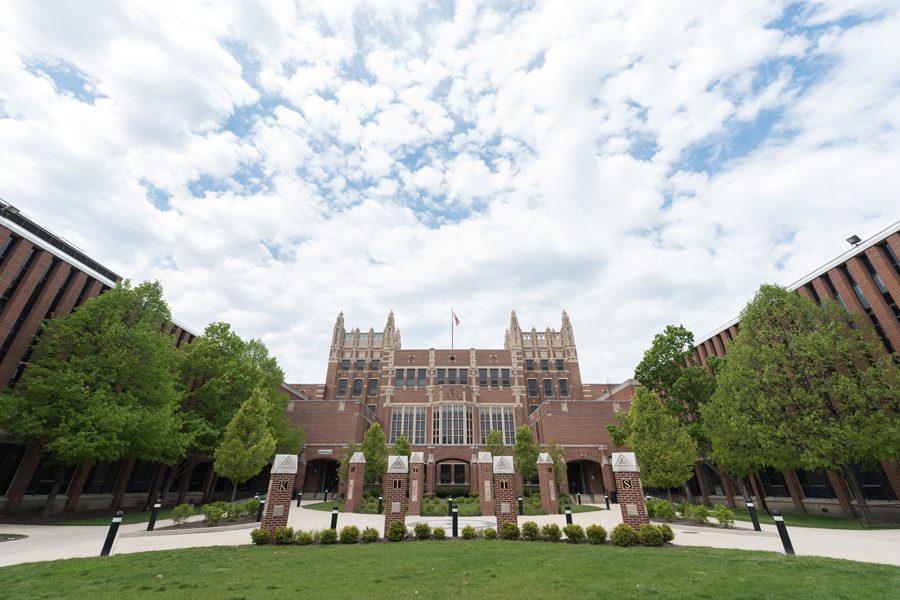ETHS officials, students working on plan to redistribute confiscated newspapers
Daily file photo by Jeffrey Wang
Evanston Township High School, 1600 Dodge Ave. The school’s administrators and student newspaper staff members are nearing a decision regarding the redistribution of confiscated papers.
October 20, 2017
Evanston Township High School officials and students are grinding out a plan to redistribute newspapers containing articles about marijuana use after a contentious decision to confiscate the papers.
The Sept. 22 issue of The Evanstonian was removed from circulation because a series of articles in the section, “The Pot Thickens…,” promoted illegal conduct that violates school policy, ETHS Principal Marcus Campbell said in a statement. In the statement, Campbell said he determined two articles in the series glorified drug use and drug dealing, and promoted ideas “detrimental to ETHS students.”
“It’s not that they can’t do it, it’s just that it has to be balanced,” Campbell told The Daily. “If it’s balanced reporting, then it doesn’t incite kids to do something illegal.”
ETHS senior Michael Colton, one of three co-executive editors of The Evanstonian, said he will meet with Campbell on Friday to talk about strategies for redistributing the confiscated paper.
To accommodate the administration, Colton said the newspaper staff may add two extra pages incorporating an infographic about the legal consequences of marijuana possession and use. They may also include a disclaimer from the administration condemning marijuana use.
While the staff doesn’t hold animosity toward the administration, Colton said they won’t “sit down” in the face of censorship. He said staff want a commitment from officials respecting their rights to free press.
Colton added that officials contradicted the values they teach by preventing the newspaper from operating independently.
“When there’s someone constantly looking over your shoulder, telling you how to present facts, or how to write your stories, there’s really no good for the writer in that or the reader,” Colton said. “It presents a skewed version of the facts that is not really going to lead to any sort of growth.”
To maintain independence from public institutions, a state law passed in July 2016 protects student journalistic free speech — with exceptions made to any expression that “incites students to commit an unlawful act.”
Mike Hiestand, a project attorney for the Student Press Law Center, said his job primarily involves providing help and legal information on media law to high school and college students. He said the burden to provide reasonable evidence in determining if the newspaper “incited students” falls on administrators.
“Does students talking about drug use — does that incite students?” Hiestand said. “Inciting is more than just trying to persuade or trying to convince. Inciting is … ‘Because of this article, I am going to go out and hit a bong.’”
Campbell said in the statement that while state and federal laws provide student journalists with certain free speech rights, those rights are limited. He said school administrators can impose limits if they feel the journalism violates school policy or spurs illegal acts.
The paper was confiscated within an hour of its release, and Campbell told The Daily there is no requirement for due process if there’s reason to think the content is driving students to break the law.
Colton said the paper gave students no new information about marijuana that wasn’t already accessible, and that it covered a relevant issue among the student body.
“We really tried to make a public issue out of this and I think that’s probably the only way that we are coming close to a revolution in this all,” Colton said. “We persisted and refused to back down when no explanation was given.”
Alan Perez contributed reporting.
Email: [email protected]
Twitter: @ryanwangman


